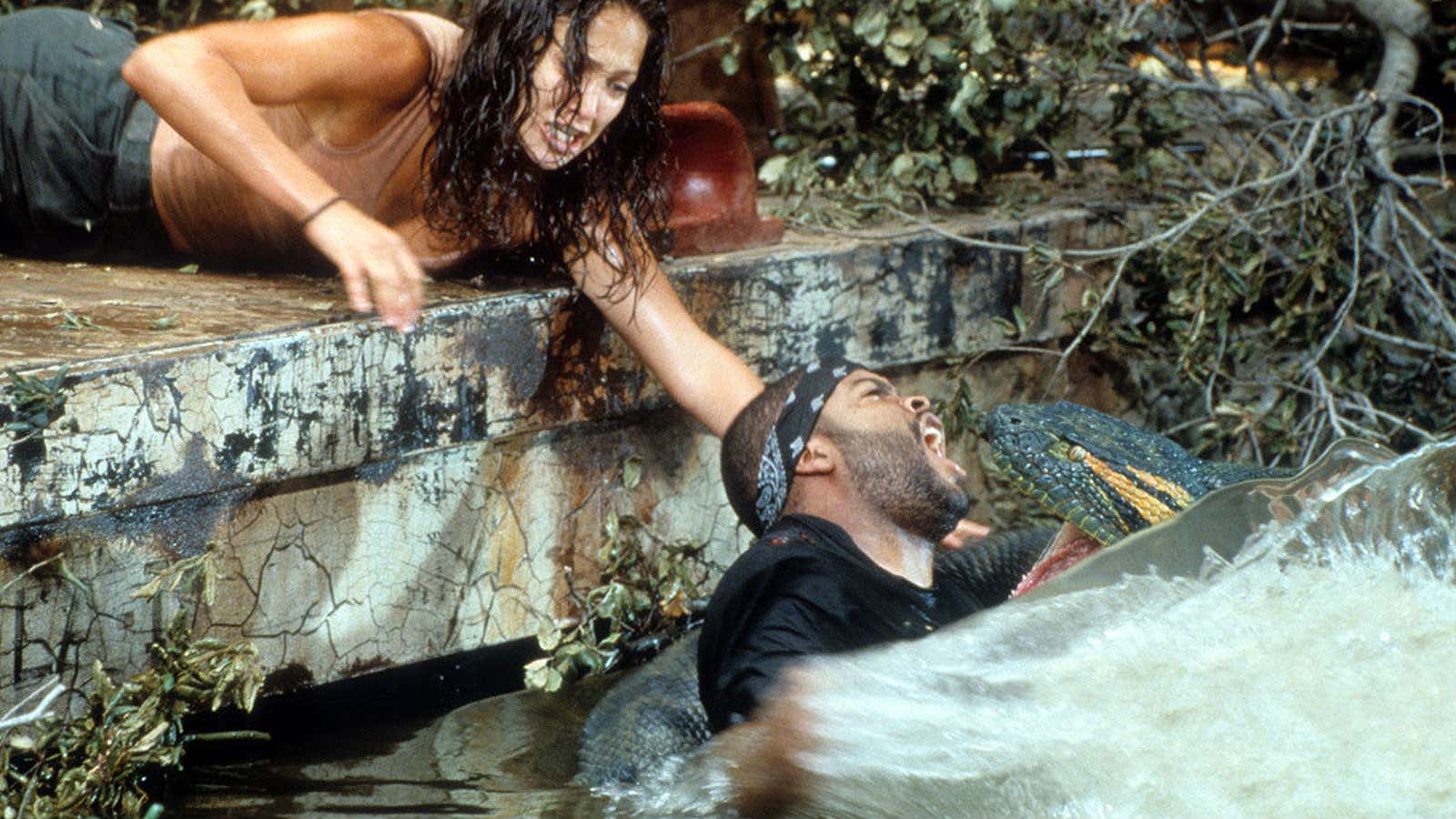The Discovery Channel has completed its devolution.
Sunday night, Discovery aired Eaten Alive, a much-hyped, two-hour special in which a man was to be eaten alive by an anaconda, for reasons unknown. But really, the only thing “eaten alive” was Discovery’s last shred of dignity.
The special promised to show naturalist and daredevil Paul Rosolie get consumed whole by the massive snake. The first 90 minutes or so of the two-hour show were dedicated to Rosolie and his team canoeing through the swamps of the Amazon, flopping around in the water, looking for a snake to eat him. Then, in the final few minutes, Rosolie confronted a snake and threw himself on top of it, essentially forcing the creature to wrap him in its coils.
Despite the innovative design of Rosolie’s snake-proof, customized Monty Python suit, the force of the coil was too much, and Rosolie called off the stunt after he said his arm was going to break. The snake left hungry, and viewers left disappointed.
Watch the riveting drama unfold:
A video on Discovery’s website called “Why Get Eaten Alive?“ purports to explain the motivation behind the stunt (watch it and you’ll still have no idea) but we knew long ago why they did it.
The network that brings you Amish Mafia had its highest viewership in 12 years last year by committing to programming like Eaten Alive and other shows that are somehow even less scientific than that, like the illegal racing show Street Outlaws. This tweet just about sums up Discovery’s strategy with Eaten Alive and similar TV events:
“Wallenda,” of course, refers to Nik Wallenda, the high wire walker who has a near-exclusive deal with Discovery to air his stunts. Are they educational? No. Entertaining? Debatably. Even these types of stunts mislead audiences, though admittedly not quite to the same degree of duplicity that the Eaten Alive special inflicted. That’s setting the bar rather low.
Even Shark Week, as ratings-driven and pseudoscientific as it is, can have some educational value. It is possible to learn interesting facts about sharks watching Shark Week. The only thing to be gleaned from Eaten Alive is that anacondas are very big and very strong. That isn’t exactly new information to anyone, especially those who of us have seen the 1997 film Anaconda with Jennifer Lopez and Ice Cube—a movie with as much educational value as anything the Discovery Channel has aired in years.
The saddest truth of all is that there is a huge market for this type of show. People watch it. And as long as people watch it, Discovery will keep doing it. The days of fascinating, valuable programming like Planet Earth are over for good.
Quartz has reached out to Discovery for comment, and this story will be updated should the network respond.
